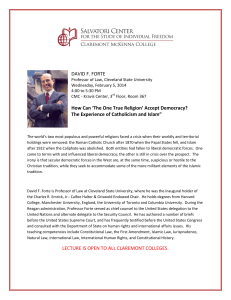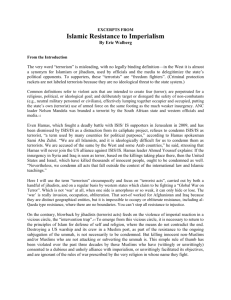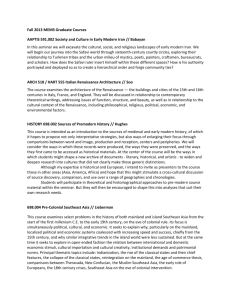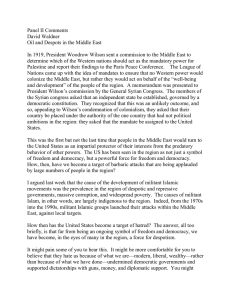An after-revolution Islamic though development in Iran
advertisement
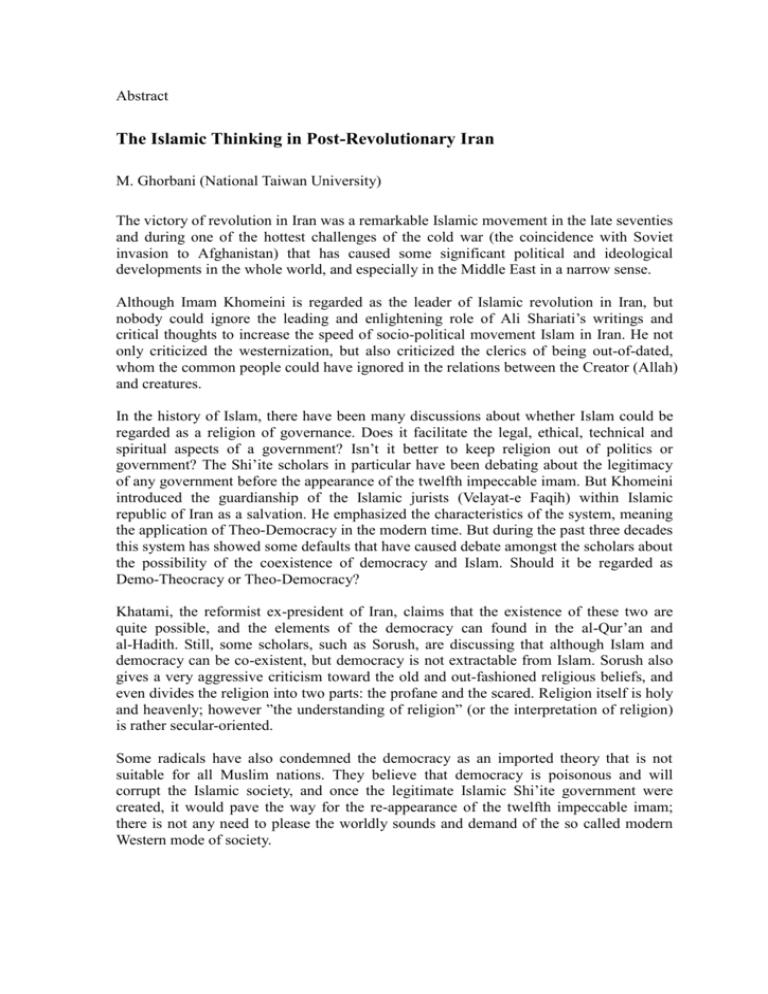
Abstract The Islamic Thinking in Post-Revolutionary Iran M. Ghorbani (National Taiwan University) The victory of revolution in Iran was a remarkable Islamic movement in the late seventies and during one of the hottest challenges of the cold war (the coincidence with Soviet invasion to Afghanistan) that has caused some significant political and ideological developments in the whole world, and especially in the Middle East in a narrow sense. Although Imam Khomeini is regarded as the leader of Islamic revolution in Iran, but nobody could ignore the leading and enlightening role of Ali Shariati’s writings and critical thoughts to increase the speed of socio-political movement Islam in Iran. He not only criticized the westernization, but also criticized the clerics of being out-of-dated, whom the common people could have ignored in the relations between the Creator (Allah) and creatures. In the history of Islam, there have been many discussions about whether Islam could be regarded as a religion of governance. Does it facilitate the legal, ethical, technical and spiritual aspects of a government? Isn’t it better to keep religion out of politics or government? The Shi’ite scholars in particular have been debating about the legitimacy of any government before the appearance of the twelfth impeccable imam. But Khomeini introduced the guardianship of the Islamic jurists (Velayat-e Faqih) within Islamic republic of Iran as a salvation. He emphasized the characteristics of the system, meaning the application of Theo-Democracy in the modern time. But during the past three decades this system has showed some defaults that have caused debate amongst the scholars about the possibility of the coexistence of democracy and Islam. Should it be regarded as Demo-Theocracy or Theo-Democracy? Khatami, the reformist ex-president of Iran, claims that the existence of these two are quite possible, and the elements of the democracy can found in the al-Qur’an and al-Hadith. Still, some scholars, such as Sorush, are discussing that although Islam and democracy can be co-existent, but democracy is not extractable from Islam. Sorush also gives a very aggressive criticism toward the old and out-fashioned religious beliefs, and even divides the religion into two parts: the profane and the scared. Religion itself is holy and heavenly; however ”the understanding of religion” (or the interpretation of religion) is rather secular-oriented. Some radicals have also condemned the democracy as an imported theory that is not suitable for all Muslim nations. They believe that democracy is poisonous and will corrupt the Islamic society, and once the legitimate Islamic Shi’ite government were created, it would pave the way for the re-appearance of the twelfth impeccable imam; there is not any need to please the worldly sounds and demand of the so called modern Western mode of society.
